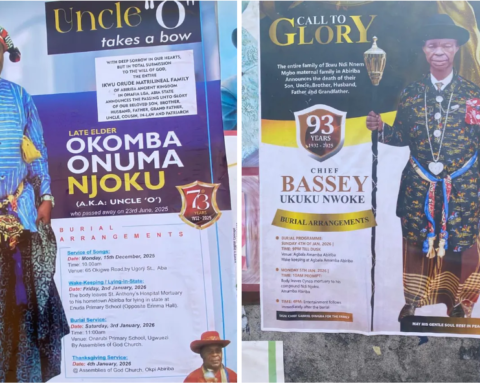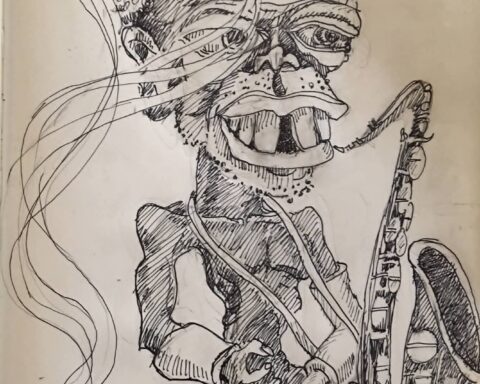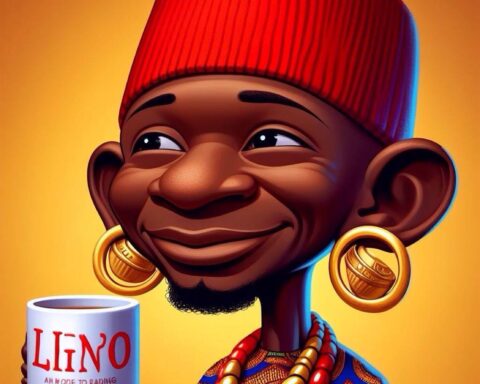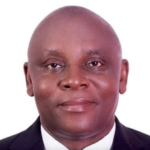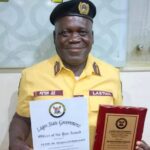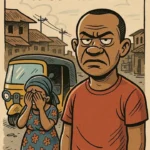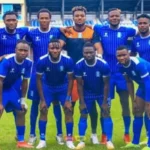By Dr. Charles Obiajulu Ugwu
There are moments often in the quiet hours before dawn when life feels like a vast territory with no clear map. We carry a compass, but its face is fractured, the needles trembling in different directions. One points toward faith, another toward belief, and the third toward knowledge. Each insists it alone can guide us to safety.
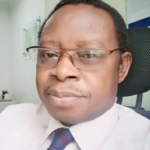
Each claims a different kind of truth. And because the compass is cracked, the needles never perfectly align. We are forced to choose a path without certainty, walking across a landscape we only half understand.
This is not a flaw in the human condition; it is the human condition.
Every choice we make whether to love, to fight, to stay, to leave emerges from this three-way pull. We like to imagine that reason governs us, that we decide because the facts demand it. But facts alone rarely move a person to cross an ocean, to risk reputation for a principle, to endure suffering for a dream. Behind every spreadsheet, every creed, every quiet hunch is a deeper architecture of trust, story, and proof. Our cracked compass is not merely a metaphor for confusion; it is the actual mechanism of our daily lives.
Three Needles, Three Languages
The first needle, faith, speaks the language of audacity. Faith is the daring leap across an abyss you cannot measure. It is the mother in Khartoum who boards a leaking boat at midnight with her two children because she trusts without data, without guarantees that the far shore holds a better life. It is the engineer in a small Nairobi start-up who bets her savings on a technology that has never worked outside a lab. Faith thrives on the unseen. It requires no ledger, only the courage to wager that reality will meet you halfway.
The second needle, belief, speaks in the soft voice of inheritance. Belief is the quiet acceptance of a claim you cannot or need not prove. You believe the sun will rise tomorrow not because you’ve computed celestial mechanics but because the rhythm of your life has taught you to expect it. Nations are held together by belief in shared fictions: the legitimacy of borders, the value of paper currency, the idea that a constitution can bind the living and the dead. Belief stabilizes society; it offers a story we can inhabit even when the evidence is partial.
The third needle, knowledge, speaks with the clipped precision of fact. It demands demonstration and repeatability. Knowledge allows a pilot to land in a storm, a surgeon to cut without killing, a farmer to predict the rains. It is the slow, painstaking accumulation of tested truths, the discipline of bending to reality’s feedback. Knowledge is what keeps bridges from collapsing and vaccines from failing.
Each needle is indispensable. Faith launches voyages. Belief builds communities. Knowledge keeps us from walking off cliffs. But these forces rarely stay in polite formation. Faith can outrun fact and become fanaticism. Belief can ossify into prejudice. Knowledge can freeze into sterile analysis, leaving action paralyzed while life demands decision.
The Pull of Divergence
Consider the life of Amina, a Syrian refugee who fled Aleppo after her apartment building collapsed. Her knowledge told her the road to Europe was lethal: statistics on drownings, reports of smugglers, the cold mathematics of probability. Her belief in a future for her children urged her forward anyway. And beneath both lay a trembling faith that strangers across the sea would show mercy, that the world could still surprise her with kindness. Each night on the journey, these three forces argued inside her chest. She did not silence any of them. She moved forward because, despite their conflict, movement itself became a form of meaning.
Or think of Victor, a young Ghanaian scientist working on renewable energy. His knowledge years of research told him the technology might fail. His belief in human ingenuity whispered that breakthroughs often arrive unannounced. His faith pushed him to quit a secure job and risk humiliation for a dream. When the prototype finally worked, he called it “luck.” But luck is often the child of faith dressed in the clothing of fact.
These stories are not exotic outliers; they are mirrors of our own quieter struggles. Every time we love someone whose future self we cannot predict, every time we start a project whose outcome we cannot guarantee, we live the cracked-compass dilemma. We plan with knowledge, we steady ourselves with belief, and we leap with faith.
The Civil War Within
Because these three needles rarely align, friction is inevitable. The mind, desperate for comfort, invents shortcuts. Psychologists call it cognitive dissonance; philosophers call it self-deception. We edit our memories to protect a cherished belief. We inflate a minor data point to justify a reckless leap. We hide behind endless research to avoid making a choice.
History is a gallery of these distortions. Revolutions ignite when faith outruns knowledge. Economies collapse when belief in infinite growth ignores ecological limits. Technocracies stagnate when knowledge rules but inspires no sacrifice. The conflicts tearing at our global order are simply the interior quarrel of faith, belief, and knowledge scaled to the size of nations.
Holding the Compass
What, then, are we to do with a compass that refuses to settle?
The easy temptation is to declare a winner. Some retreat into pure rationalism, exiling faith and belief as childish illusions. Others double down on belief, scorning the coldness of evidence. Still others romanticize faith, celebrating the leap as a virtue in itself. Each strategy offers temporary relief but exacts a hidden cost. Life will eventually present a situation where your chosen master falters: a betrayal that mocks your belief, a miracle that defies your skepticism, a dataset that contradicts your deepest trust.
A wiser posture begins with acceptance. We are not meant to live with a single needle. Identity is not a fortress of certainty but a living negotiation among these three forces. The goal is not to silence the quarrel but to conduct it with honesty.
To accept the cracked compass is to admit that life will not hand you the comfort of a single, stable direction. Yet this admission, far from a surrender, opens a more demanding kind of freedom. Instead of clinging to one master reason, tradition, or blind faith you begin to cultivate a dynamic equilibrium, a way of moving that honours all three forces without letting any become a tyrant.
This equilibrium is not a tidy formula. It is a lived art. Imagine a sailor steering through shifting winds. He reads the instruments (knowledge), trusts the feel of the boat beneath his feet (belief in his own skill), and commits to a destination he cannot yet see (faith). He does not curse the changing gusts; he works with them, adjusting sails and course as conditions demand. We, too, must learn to tack and pivot, to hold tension without panic.
The Small Experiments of Everyday Life
For most of us, the arena of this art is not the high drama of revolutions or refugee crossings but the ordinary experiments of daily living.
Consider the woman in Mumbai who leaves a prestigious corporate job to teach in an underfunded school. Her knowledge spreadsheets of salary cuts and career setbacks warns her against it. Yet her belief in education as a force for dignity, and her quiet faith that purpose will outweigh loss, carry her through the decision. Years later she describes the move not as courage but as inevitability: “It felt more dangerous to stay.”
Or the middle-aged father in São Paulo who, after a health scare, takes up long-distance running. He studies the science of training (knowledge), joins a local club whose rituals reinforce his belief in community, and trusts against every statistic about ageing that his body can learn new tricks (faith). His first marathon medal hangs in the hallway, less a trophy than a proof of negotiated identity: he is no longer merely a commuter and provider; he is a runner, a risk-taker, a man in motion.
These stories matter because they reveal how the cracked compass operates beneath the surface of ordinary decisions. Each choice is a rehearsal for larger bets. Each small act of integrated risk teaches the nervous system that coherence is not found in the absence of conflict but in the willingness to move through it.
Cultures as Composite Selves
What is true of individuals echoes across cultures. Civilizations are collective minds, and they too wrestle with the three needles.
Japan balances knowledge in its meticulous technology, belief in centuries-old rituals, and a quiet faith in impermanence captured by the cherry blossom. The United States swings violently between frontier faith in limitless possibility, populist belief in self-made identity, and the hard knowledge of a technocratic economy. Indigenous societies often maintain elaborate ceremonies that braid empirical observation of nature (knowledge) with spiritual cosmologies (faith and belief), ensuring that ecological management carries both evidence and reverence.
These cultural negotiations are never static. When one force grows too dominant, imbalance follows. The Soviet Union exalted knowledge and crushed faith, only to collapse under the weight of its own sterile certainty. Theocratic regimes elevate faith and belief while suppressing knowledge, breeding stagnation and exile. Hyper-technocratic nations risk a subtler erosion: citizens equipped with dazzling data but starved of narrative purpose.
The lesson is not that every society must strike an identical balance, but that any society ignoring one of the three invites fracture. The same holds for the self.
Practices for Navigating the Friction
How, then, might an individual live with the cracked compass without losing a coherent identity? A few practices tested across disciplines and cultures offer guidance.
1. Intellectual Humility
Knowledge is never finished. New data will arrive to unsettle today’s certainties. To hold knowledge lightly is not to despise it, but to respect its provisional nature. The scientist who welcomes falsification, the investor who cuts losses quickly, the parent willing to revise methods with each child all practice a humility that keeps knowledge from becoming dogma.
2. Faithful Risk
Faith is not mere wishful thinking. It is disciplined courage in the absence of proof. Start small: speak a difficult truth to a friend, apply for a job beyond your comfort zone, travel to a place whose language you do not know. Each leap trains the psyche to tolerate uncertainty, to trust that reality may reward vulnerability.
3. Critical Belief
Beliefs are the stories we inhabit. They provide meaning but can harden into prisons. Periodically audit your narratives. Ask which beliefs still nourish growth and which merely shield you from discomfort. Keep the ones that enlarge your capacity for compassion; discard those that shrink it.
4. Conversational Selfhood
Treat your inner life as an ongoing dialogue rather than a battlefield. When faith urges action and knowledge counsels caution, listen to both. Name the tension aloud or on paper. Clarity often emerges not from silencing a voice but from allowing each to speak until the next step feels—not certain but sufficiently alive.
These practices do not promise serenity. They promise something more demanding and ultimately more rewarding: integrity without rigidity.
The Myth of Final Harmony
Many self-help traditions offer the dream of “alignment,” a state in which head, heart, and spirit move as one. The image is seductive: a seamless self gliding through life like a perfectly tuned instrument. But experience suggests a different truth. The self is not a symphony in which every note resolves; it is a jazz improvisation, full of dissonance and unexpected key changes. Coherence is not the absence of tension but the ability to ride it without breaking rhythm.
Philosopher Paul Tillich once wrote that faith is “the courage to accept acceptance.” To live with a cracked compass is to accept that we are already accepted by existence, even in our incoherence. We need not earn wholeness by erasing contradiction. We need only learn to dance with it.
The Nigerian Mirror
If the human predicament is a cracked compass, Nigeria is one of its most vivid laboratories.
Few nations display with such intensity the collision of faith, belief, and knowledge three needles spinning over a land rich in talent, trauma, and restless possibility. To watch Nigeria wrestle with itself is to watch the drama of the human mind played on a continental stage.
Faith in the Midst of Uncertainty
Faith thrives where proof is scarce yet hope refuses to die, and Nigeria’s streets are thick with it.
Take the midnight vigils in Lagos megachurches, where thousands sing under fluorescent lights, hands raised toward an unseen deliverance. Among the worshippers might be a young woman named Ifeoma, a graduate in biochemistry who has sent out a hundred CVs without response. Her knowledge tells her the labour market is brutal and nepotistic. Her belief nurtured by family prayers and testimonies insists that perseverance will bring a breakthrough. Her faith, wilder still, drives her to rise before dawn to join a prayer line that snakes around the building, trusting that an invisible force can bend the arc of circumstance.
Faith also shows up in less overtly religious forms. The tech hubs of Yaba and Abuja are full of twenty-something coders betting on start-ups that defy every infrastructure obstacle: erratic power supply, fragile internet, opaque regulations. They study market data (knowledge), they believe in Nigeria’s demographic dividend, but the final push the decision to quit a steady job and chase a dream rests squarely on faith. “You have to believe in something bigger than the chaos,” one founder told me, “or you’d never begin.”
Belief as Social Glue
Belief, the second needle, binds Nigeria’s astonishing diversity into a single though quarrelsome polity.
Consider the belief in community that animates extended family networks. In many villages, no child truly belongs to a single household; uncles, aunties, and neighbours share responsibility. Evidence often shows that such obligations can strain personal finances, yet the belief that “we rise together or not at all” persists, sustaining a fragile social safety net where government services falter.
Belief also drives political behaviour. Every election cycle, citizens queue for hours in blistering heat to cast votes despite widespread scepticism about fairness. They believe sometimes against repeated disappointments that participation still matters, that democracy can inch forward. This belief is not naïve; it is strategic, a collective narrative that keeps the national project alive even when knowledge of systemic flaws might suggest withdrawal.
At the street level, the belief in hustle that relentless ingenuity Nigerians call japa energy or simply “survival sense” functions as an unwritten creed. A bus conductor in Ojuelegba may not trust the government or the currency, but he believes in his own capacity to improvise, to “find way” when official channels fail. This belief fuels an economy that somehow keeps moving despite chronic disruptions.
Knowledge and the Cold Ledger
Then comes knowledge, the third and often most unsettling needle.
Knowledge is the epidemiologist tracking malaria data in Kano, refusing to let superstition dictate health policy. It is the investigative journalist exposing budget padding despite threats. It is the civil engineer calculating the load-bearing limits of a bridge before a rainy season that will test every joint. Knowledge, unlike belief, demands verification; unlike faith, it accepts no miracle without evidence.
Yet knowledge alone rarely wins unchallenged. A climate scientist in Port Harcourt may present irrefutable data on oil-related pollution, only to watch policy stall because vested interests appeal to belief (“our economy needs crude”) or faith (“God will protect the Delta”). The scientist’s struggle is Nigeria’s struggle writ large: how to let fact inform action in a culture where stories and spiritual confidence carry their own fierce legitimacy.
The Dance of the Three Needles
Nowhere is the interplay of these forces clearer than in Nigeria’s entrepreneurial boom.
Take the story of Tunde, a young fintech founder from Ibadan. His knowledge of mobile banking trends convinced him that underserved rural markets were ripe for disruption. His belief in Nigeria’s youthful population and hunger for innovation told him customers would adopt quickly. But it was faith—the stubborn conviction that investors would eventually trust a start-up run from a two-room apartment—that kept him pitching after a dozen rejections. When funding finally arrived, journalists hailed his “business acumen,” but Tunde laughs at the phrase. “Acumen is just what they call faith after it works,” he says.
The same dance appears in public life.
During the #EndSARS protests, young Nigerians gathered across cities to demand an end to police brutality. Their knowledge of systemic abuse was meticulously documented with videos and data. Their belief in collective action fuelled days of peaceful occupation. And their faith that leaderless organisation could bend a resistant state gave the movement its electric urgency. Though the protests faced brutal suppression, they shifted the national conversation, proving that even a cracked compass can point toward change when all three needles surge together.
Navigating the Nigerian Paradox
Living in Nigeria trains a person in the art of holding contradictions. You learn to plan a wedding while budgeting for a power outage. You celebrate dazzling academic achievements even as public universities shut down in strikes. You trust strangers on a night bus while keeping one hand on your wallet. Every day requires a negotiation among faith, belief, and knowledge.
This negotiation breeds a peculiar resilience. Nigerians joke about their “survivor gene,” but beneath the humour lies a hard-won wisdom: coherence is not the absence of tension; it is the ability to keep moving within it. A Lagos trader may curse government policy in the morning, attend a revival service in the afternoon, and study foreign exchange rates at night all without feeling hypocritical. The cracked compass is not an embarrassment; it is a survival tool.
Lessons from the Cracked Compass
What, then, does Nigeria teach the world about navigating a fractured inner life?
First, that faith, belief, and knowledge are not enemies to be ranked but partners in an endless argument. Progress depends not on silencing the quarrel but on letting each voice refine the others. Faith without knowledge breeds zealotry; knowledge without belief breeds paralysis; belief without faith breeds cynicism.
Second, that identity is less a finished sculpture than a market day messy, noisy, alive with bargaining. A Nigerian can be devoutly Christian and fiercely entrepreneurial, sceptical of government yet hopeful about democracy, traditional in family obligations yet wildly experimental in business. The apparent contradictions are not evidence of confusion but of a deeper agility.
Third, that the cracks themselves let light in. Nigeria’s greatest cultural exports its music, literature, entrepreneurial energy emerge from the friction between inherited belief, daring faith, and hard-won knowledge. Afrobeats thrives because it samples everything: traditional rhythms, global pop, digital technology. It is the soundtrack of a people who refuse to choose a single needle.
The Courage to Remain Cracked
Stand for a moment on Lagos Island at dusk. The call to prayer drifts from a nearby mosque while a gospel choir rehearses in a side street. Traffic roars like an impatient sea. Somewhere a generator sputters to life, and young men with smartphones trade crypto as hawkers shout prices for roasted corn. Faith, belief, and knowledge all speak at once, their voices clashing and blending in the humid air.
This is not chaos; it is a living instruction. The human task is not to fuse the needles into one obedient arrow. It is to carry the cracked compass with courage, to navigate by conversation rather than certainty, to move even when the readings conflict. Nigeria reminds us that coherence is not a static peace but a rhythm sometimes dissonant, always alive.
Perhaps this is the deeper invitation of our fractured nature: not to mend the cracks, but to walk with them until the journey itself becomes the meaning. The compass may never point to a single true north, but if we keep moving faith in one hand, belief in the other, knowledge in our pack we may discover that the very wobble we feared is what keeps us awake, adaptive, and unmistakably human.
About the Author
Dr. Charles Obiajulu Ugwu writes from Lagos.
Follow us on all social media platforms @dailyquery for news and analyses around the globe.


